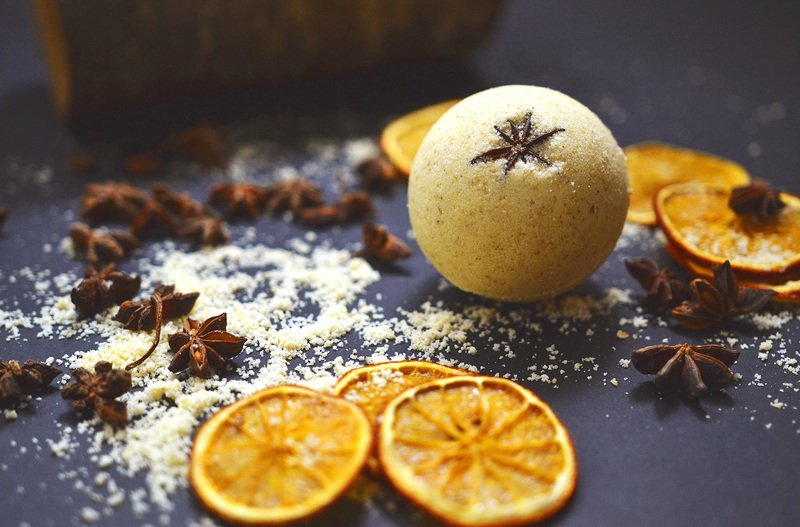A Guide to Essential Jewellery Cleaning Methods
Posted on 23/09/2025
A Guide to Essential Jewellery Cleaning Methods
Jewellery is more than just a fashion statement; it represents special moments, cherished memories, and personal style. Just like your most treasured keepsakes, your jewellery deserves proper care to maintain its beauty and lustre. This comprehensive guide explores essential jewellery cleaning methods every owner should know. Whether you wear gold rings daily, flaunt diamond earrings, or prize a collection of vintage pieces, keeping your jewellery sparkling is easier than you think.
Why Is Regular Jewellery Cleaning Important?
Your jewellery encounters a range of contaminants every day--oils from your skin, lotions, perfumes, sweat, dust, and even household chemicals. Over time, this buildup can diminish the shine and even damage your favourite pieces. Proper care and cleaning methods help:
- Restore brilliance by removing dulling residues
- Preserve metal integrity, preventing tarnish and corrosion
- Maintain gemstone sparkle for diamonds, rubies, sapphires, and more
- Extend the longevity of your jewellery and protect your investment
Regular cleaning not only improves appearance but also ensures that clasps and settings remain secure, reducing the risk of losing precious stones.

Common Types of Jewellery and Their Unique Cleaning Needs
Before diving into the best jewellery cleaning techniques, it's crucial to recognize the variety of materials and their specific care requirements. The wrong approach can cause irreparable damage, so always identify the metal and gemstones involved:
- Gold (yellow, white, or rose)
- Silver (prone to tarnish)
- Platinum (durable but can scratch)
- Diamonds (hard, but prone to oil buildup)
- Gemstones (pearls, opals, emeralds, etc.--often delicate)
- Pearls & Organic Gems (require special gentle cleaning)
Essential Jewellery Cleaning Methods
1. Soap and Water: The Classic Method
Suitable for: Gold, platinum, diamond, and most harder gemstones.
The simplest and safest cleaning method for many types of jewellery is a solution of mild dish soap and lukewarm water:
- Fill a small bowl with lukewarm water and add a few drops of mild, ammonia-free dish soap.
- Soak your jewellery for 10 to 30 minutes to loosen grime and oils.
- Gently scrub using a soft-bristled toothbrush (preferably new) to remove stubborn dirt, especially in crevices.
- Rinse thoroughly with clean water, being careful not to lose small pieces down the drain.
- Gently pat dry with a soft, lint-free cloth.
Important: Always avoid hot water, as temperature shocks can damage certain gems.
2. Professional Jewellery Cleaning Solutions
Best for: Gold, platinum, and harder gemstones; avoid on soft or porous stones (pearls, opals, turquoise, etc.).
Specialized cleaning solutions are available at jewellery stores. They're formulated to quickly dissolve tarnish and residue:
- Read all labels to ensure suitability for your jewellery type.
- Follow instructions carefully, usually involving brief soaking followed by gentle brushing.
- Always rinse and dry as directed to avoid chemical residue.
Tip: Test the solution on a small area first, especially for vintage or delicate items.
3. Baking Soda and Water Paste: For Silver Jewellery
Best for: Solid silver or sterling silver items (avoid on pieces with gemstones or plating).
- Mix baking soda with a few drops of water to create a thick paste.
- Apply gently using a soft cloth or sponge.
- Rub into the tarnished areas using small circles. Avoid excessive pressure to prevent scratching.
- Rinse thoroughly and buff dry with a soft cloth.
*Do not use on silver with oxidized (intentional dark) finish or glued-in stones.*
4. Ammonia Solution: Restoring Diamonds' Sparkle
Best for: Diamonds and diamond jewellery (not suitable for softer gemstones or pearls).
An ammonia-based solution can cut through stubborn grease and make your diamonds shine brightly:
- Mix one part ammonia with six parts water in a bowl.
- Soak your diamond jewellery for 30 minutes.
- Scrub gently with a soft brush.
- Rinse with water and pat dry.
Important: Ammonia should never be used on gold, silver, pearls, or coloured gemstones, as it can cause damage.
5. Ultrasonic Cleaners: Deep Clean Technology
Great for: Durable pieces without fragile stones or glued-in parts.
Ultrasonic jewellery cleaners use high-frequency sound waves to dislodge dirt. They're highly effective, but require caution:
- Follow manufacturer guidelines strictly to avoid accidents.
- Never use with pearls, opals, emeralds, or glued-in stones--the vibrations can shatter or loosen settings.
- After cleaning, examine your jewellery for loose stones--ultrasonic cleaning can reveal issues with prongs and mounts.
Tip: Reserve ultrasonic cleaning for sturdy diamond and precious metal pieces only.
6. Gentle Cloth Polishing: Quick Shine-Boost
For a fast refresh, a microfiber or chamois cloth can lift dirt and oils from most metal and gemstone surfaces. These cloths are impregnated with special cleaning compounds for silver or gold, giving a chemical- and water-free boost to your jewellery's brilliance.
- Avoid using paper towels--they can scratch precious metals and gems.
- Polishing cloths are ideal for daily maintenance, especially for rings and chains you wear everyday.
Caring for Delicate and Speciality Jewellery
Pearls and Organic Gems
Pearls, opals, amber, and turquoise are porous and highly sensitive to chemicals and moisture. For these pieces, adhere to ultra-gentle cleaning:
- Wipe with a soft, barely damp cloth after every wear.
- Avoid soaking, detergents, and ultrasonic cleaners.
- Let air-dry fully before storing to prevent rot or discolouration.
Never use harsh chemicals, alcohol, or acids on natural or organic gem jewellery.
Gold-Plated and Costume Jewellery
Fashion jewellery typically features thin layers of gold or silver over a base metal, or contains synthetic stones. These pieces need extra care to avoid wear:
- Wipe after each wear with a soft, dry cloth.
- Never soak or scrub aggressively, as this can strip plating.
- If needed, spot clean with a cotton swab dipped in gentle soapy water, and dry immediately.
When to Seek Professional Jewellery Cleaning
Some items warrant expert care:
- Antique, vintage, or heirloom pieces
- Emotionally valuable gemstones with fragile settings
- Complex jewellery with mixed materials
- Pieces with extensive tarnish or corrosion
Professional jewellers have specialized equipment and knowledge for safe, thorough restoration. Schedule an annual "jewellery check-up" to inspect for loose stones or worn prongs, in addition to a deep clean.
Common Jewellery Cleaning Mistakes to Avoid
Even with the right intentions, mistakes can cause irreversible harm. Keep your treasures safe by avoiding these errors:
- Using toothpaste, baking soda, or abrasive scrubbers on soft metals or gemstones
- Submerging costume jewellery, pearls, or glued stones
- Using bleach, vinegar, or lemon juice on sensitive gems and metals
- Cleaning vintage or delicate items without expert advice
- Not rinsing thoroughly after chemical use--residues can cause tarnish or irritation
Best Practices for Jewellery Care and Maintenance
Beyond routine cleaning, the way you store and wear your jewellery affects its lasting shine:
- Store pieces individually to avoid scratching and tangling
- Use soft-lined boxes or anti-tarnish pouches
- Remove jewellery before showering, swimming, or applying cosmetics
- Have prongs and clasps checked regularly by a professional
- Establish a cleaning routine--for items worn daily, clean at least once a week

Frequently Asked Questions: Jewellery Cleaning Methods
Can I clean all my jewellery the same way?
No. Different metals and gemstones require tailored cleaning approaches. Always check what your jewellery is made from and test a cleaning method on a small area first.
How do I clean jewellery with intricate designs?
Use a soft toothbrush and soapy water to reach small crevices. After brushing, rinse thoroughly and use a lint-free cloth to dry.
Is it safe to use ultrasonic cleaners at home?
Only for durable, plain precious metal and diamond jewellery. Always avoid with fragile, glued, or organically derived items. Read the device instructions carefully.
How often should I clean my jewellery?
Daily-wear items (rings, earrings, bracelets) benefit from a weekly cleaning. Less frequently worn items can be cleaned as needed, but at least every few months is recommended.
Can I use household cleaners like vinegar or bleach?
Never use harsh chemicals like bleach, vinegar, or household cleaning products--they can damage metals and stones irreparably.
Conclusion: Keep Your Jewellery Sparkling for Years
Your jewellery is a reflection of your style and memories. With a little regular care and the right jewellery cleaning techniques, you can enjoy their beauty for generations.
By understanding essential jewellery cleaning methods--from simple soapy water to specialized solutions--you'll protect your investments and keep your cherished pieces shining bright. Remember:
- Be gentle and cautious with delicate or unique jewellery
- Use method-specific cleaning for each type of metal or gemstone
- When in doubt, trust the professionals
With this guide at your fingertips, you'll always have the knowledge to clean, care for, and treasure your jewellery collection.
Latest Posts
Unlock Pro Techniques for Spotless Car Cleaning
A Guide to Essential Jewellery Cleaning Methods
Breathe New Life into Your Home with Our Essential Spring Cleaning Guide
Your Guide to a Clean and Allergen-Free Home
Keep Your Sofa Covers Fit and Fresh: Washing Secrets Revealed




